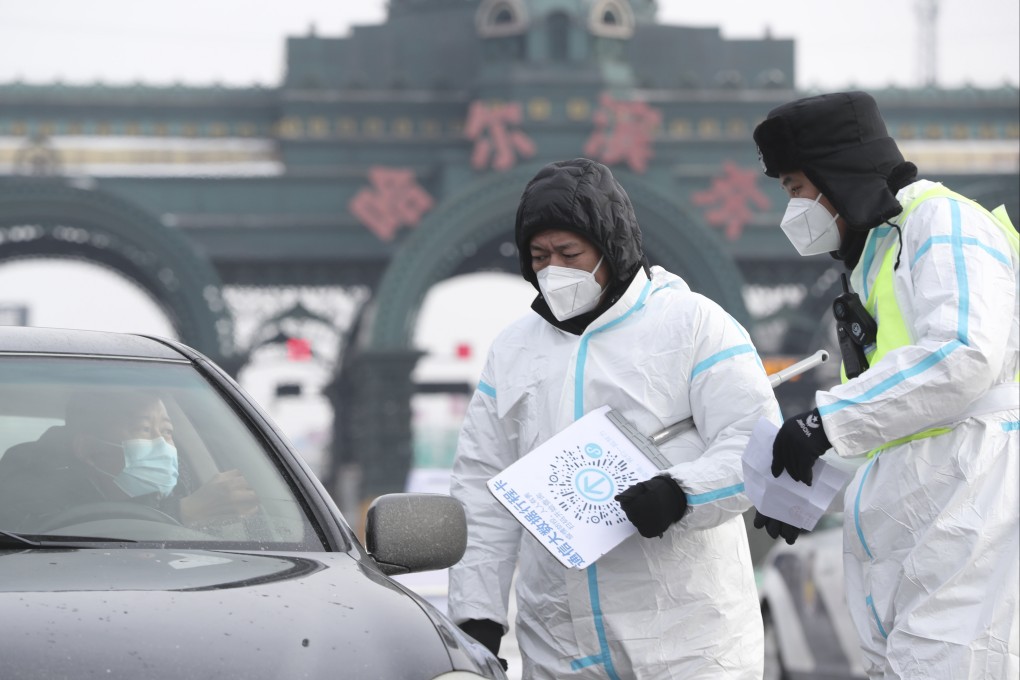Advertisement
China equipped to stop Omicron if it arrives, Beijing official says
- Manzhouli, on the border with Russia, remains the epicentre of the country’s latest Covid-19 outbreak
- A further 27 local symptomatic cases in the city take its total to 396 from eight rounds of daily testing
2-MIN READ2-MIN
3

The Chinese authorities are ready to rapidly identify the new coronavirus variant Omicron if it reaches Beijing, a health official said on Monday.
“We have established the testing capacity for mutant strains to prevent and control Omicron,” said Yang Peng, an official at the Beijing Centre for Disease Control and Prevention.
The Omicron variant has yet to be detected in mainland China, but its emergence in several countries and territories could pose a new threat to the government’s much-debated zero-Covid policy, involving mass testing, frequent contact tracing, lengthy quarantines and strict border controls.
Advertisement
Chinese officials have admitted previously that there was a high chance of the variant being introduced to China, but they insisted that the country’s testing regime would succeed in detecting any cases and its zero-tolerance strategy would halt community transmission.
The authorities have enacted stringent measures to halt recent Covid-19 outbreaks in Beijing – which hosts the Winter Olympics in February – and surrounding regions.
Advertisement
The country on Monday reported 38 new local symptomatic cases, of which 28 were found in the Inner Mongolian city of Hulunbuir – whose administration covers an area including the recent epicentre of Manzhouli, on the border with Russia. Manzhouli accounted for all but one of Hulunbuir’s cases.
Advertisement
Select Voice
Select Speed
1.00x